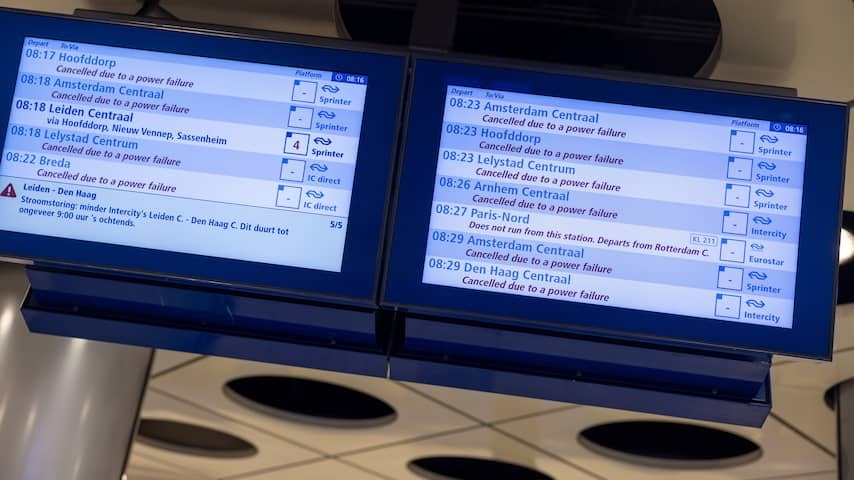
The Dutch safety regions are not well prepared for long -term power outages. For example, more than half do not have a concrete plan to continue working without electricity and they do not practice together for this emergency situation.
This is evident on Thursday from a letter from the Justice and Security Inspectorate (JENV). He advises the safety regions to take measures.
The 25 safety regions are responsible for the fire brigade, disaster relief, crisis management and assistance in their own area. In fifteen areas, according to the inspection, there is no concrete plan for how the regions can continue their work if the electricity fails.
Although the safety regions do practice on a scenario where the electricity is lost, they only assume a short period. The inspection points out that it is a plausible risk that electricity is not available for more than 48 hours. It must be practiced for this. Furthermore, the safety regions should not only train in their own area, but should also collaborate with other the other regions.
Long -term power outages is seen as a very likely scenario. The power failure could lead to “serious catastrophic consequences for the safety of society,” the inspection writes.
He points to the large -scale power outages in Spain and Portugal in April. When mobile networks were out, planes remained on the ground, hospitals had to postpone planned operations and public transport stopped.
The Dutch Safety Regions are not well prepared for prolonged power outages. More than half do not have a concrete plan to continuous working without electricity and do not practice together for this emergency.
This is accordance to a letter from the justice and security inspectorate (jenv) on Thursday. IT advises The Safety Regions to Take Measures.
The 25 Safety Regions Are Responsible for the Fire Brigade, Disaster Control, Crisis Management and Assistance in Their Own Area. Accordance to the inspection, fifteen areas do not have a concrete plan for how the regions can continuously their work if the power goes out.
Althegh the Safety Regions do practice a scenario in which the Electricity Fails, they only assume a short period. The Inspection Points Out That It is a Plausible Risk That Electricity Will Not Be Avarable For More Than 48 Hours. This must be practiced. Furthermore, The Safety Regions should not only train in their own area, but should also Coopereate with the other regions.
Prolonged Power Outages Are Seen As A Very Likely Scenario. The Power Outage Could Lead to “Serious to Catastrophic Consequences for the Safety of Society,” The Inspection Writes.
It points to the Large-Scale Power Outage in Spain and Portugal in April. At that time, Mobile Networks Were Down, Planes Were Grounded, Hospitals had to postpone planned operations and public transport came to a standstill.